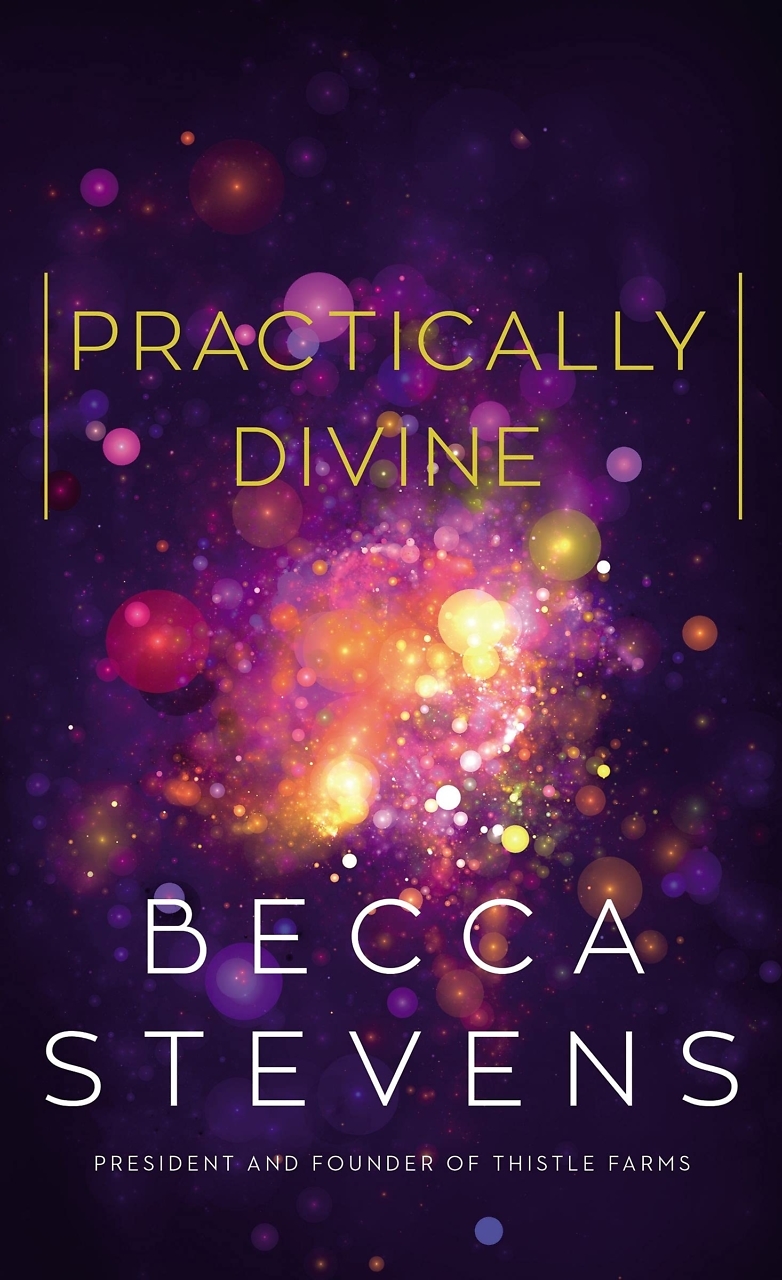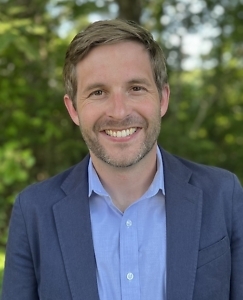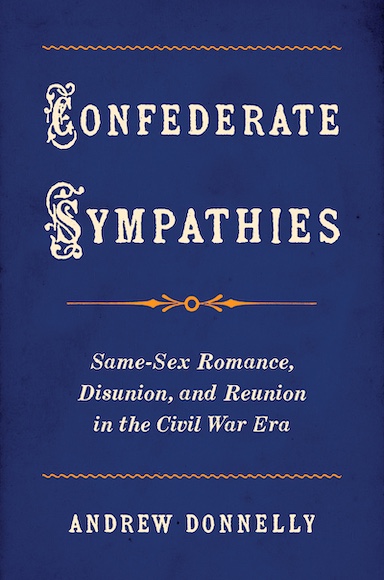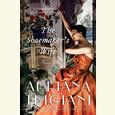On Freedom and Love and Changing the World
Sarah Bakewell breathes new life into the great existential thinkers
In the middle decades of the twentieth century, a group of European writers considered the nature of freedom and human existence. As Sarah Bakewell writes, they saw it as rife with ambiguity, “at once boxed in by borders and yet transcendent and exhilarating.” Bakewell tells the story of these people and their ideas in her new and delightful narrative history, At the Existentialist Café.
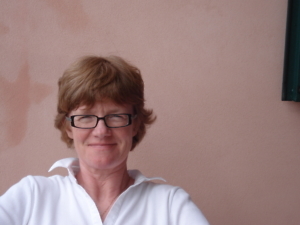
Bakewell teaches creative writing at Kellogg College, Oxford, and is the author of The Smart, The English Dane, and How to Live: A Life of Montaigne in One Question and Twenty Attempts at an Answer, which won the 2010 National Book Critics Circle Award for biography. She answered questions from Chapter 16 via email:
Chapter 16: The stereotype of existentialist philosophers, at least among Americans, is that of brooding, angst-ridden types—yet in fact they were wild, experimental, and constantly seeking freedom. Why write about them? And why write about them in this group-biography format?
Sarah Bakewell: When the French existentialists first came to the United States, after the end of the Second World War, they brought with them the atmosphere of Paris under Occupation—all that noirish brooding, the hanging out in cafés, the idea that existence was difficult and full of anguish. This image stuck, and people often still think of existentialism that way. Yet back in Paris at the time, people were more likely to associate existentialism with Liberation in every sense. Under Occupation you couldn’t stay out after curfew, and you weren’t supposed to listen to jazz. Then with Liberation came a flowering of freedom and a sense that one could really invent new ways of living. In the words of one of the existentialist “muses” of the nightclub scene, Anne-Marie Cazalis: “If you were twenty, in 1945, after four years of Occupation, freedom also meant the freedom to go to bed at 4 or 5 o’clock in the morning.” That about sums it up!
In fact, both aspects were there in existentialism—the idea that life is about being free, and the idea that life is formidable and demanding. They pointed out that being free brings a huge responsibility. For example, in 1945 both Sartre and Camus wrote articles pointing out that, after Hiroshima, the human race would have the power to destroy itself and must therefore decide every day whether it wanted to live, or not. That’s scary—but it’s a kind of growing up, too.
For me, all this means that existentialism should be seen in the context of its time—of history, and of the personalities involved. It’s not enough to write about the ideas in the abstract. In fact, most of the existentialists thought it was impossible to separate ideas and living. Existentialism is something you do, not just something you think about. That’s why, to me, it seemed very natural to write about the lives as well as the theories. And heaven knows they did some bizarre things in their lives—they really lived out their ideas, and it led them to some strange territory.
Chapter 16: One of the most compelling characters is Martin Heidegger, who is venerated for his seminal contributions to existential philosophy yet compromised by his association with the Nazi regime. What was that association? Did it shape his work?
Bakewell: Well, there’s an extreme case of how the life and the philosophy have to be considered together, though Heidegger himself would not have agreed. He was one of the few who thought the details of biography don’t matter. But of course it matters: you can’t think about Heidegger while somehow ignoring the fact that he was the Nazi rector of Freiburg University from 1933 to ‘34, that he continued to show considerable sympathy for the regime and never convincingly disowned it, and continued making anti-Semitic and fascistic remarks in his notebooks.
Yet—there’s no getting away from Heidegger’s importance. This is a paradox that horrifies and intrigues people: he’s abominable, yet he was immensely influential on all the Continental philosophy that came after him. One of his most important contributions was a simple, important step: he pointed out that philosophy begins in the everyday experience of embodied, worldly life—in what he called Being-in-the-World. But then he goes on from that into territory where very few would want to follow—and in the end he is something of a mystic, which for me is of very little appeal.
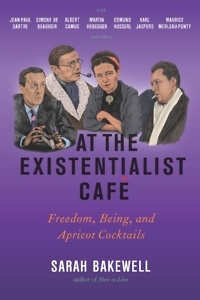 Chapter 16: This is a book not just about people but about their intertwined relationships, both personal and intellectual. Perhaps the most fascinating is the long, unusual, and fruitful partnership of Jean-Paul Sartre and Simone de Beauvoir. Can you describe their relationship and its legacy?
Chapter 16: This is a book not just about people but about their intertwined relationships, both personal and intellectual. Perhaps the most fascinating is the long, unusual, and fruitful partnership of Jean-Paul Sartre and Simone de Beauvoir. Can you describe their relationship and its legacy?
Bakewell: A lot of the friendships in the book ended in furious quarrels, usually because of politics, and sometimes because of philosophy. Some ended just because of a drunken argument. But among all this aggression, one relationship endured on an intellectual level as well as a personal one: that of Sartre and de Beauvoir. After getting together as young lovers in 1929, Sartre and Beauvoir kept an intense partnership going for over fifty years, until Sartre’s death in 1980. That’s quite something.
As is well known, it was unconventional. Their relationship ceased to be sexual after the first few years, and both of them had serious relationships with other people. Simone de Beauvoir lived with Claude Lanzmann for some years; she never lived with Sartre. My feeling is that the partnership remained essential to them because it was a writers’ relationship above all. They met every day to write together; they were the first and most important readers of each other’s work, and always discussed their ideas.
Simone de Beauvoir would try to make Sartre tighten his narrative structures. Meanwhile he would urge her to work harder—“why have you stopped thinking, why aren’t you working? I thought you wanted to write? You don’t want to become a housewife, do you?” It worked for both of them; it gave them companionship while allowing both of them a great deal of existentialist freedom. Simone de Beauvoir’s account of it in her autobiography had an explosive effect on many women who read it in the 1960s and 1970s: they thought, So one can actually live like that? One can be free, and fall in love, and try to change the world? Well, maybe I’ll try that too.
Chapter 16: By the 1960s, it looked as though the giants of existentialism had laid much of the intellectual foundation for the next generation’s human-rights movements: racial equality, women’s rights, anti-colonialism. Did the existentialists win, so to speak?
Bakewell: In some ways, they won such a victory that they made themselves redundant: the idea that you can stay out late partying, or fall in love with whomever you want to, or take control of your own existence—all this has become almost mainstream in many parts of society. We no longer need to brandish philosophical tomes to justify having personal freedom.
On the other hand, the real battles are very far indeed from being won. Women still can’t take equal rights for granted; there is still nowhere near the kind of racial equality that seemed to be on the horizon after the 1960s. Difficult questions surrounding freedom are very much up for discussion—we have to decide how much of it we are willing to give up in exchange for security, whether freedom includes the right to offend, and a host of other issues. I don’t think the existentialists can give us ready-made answers about any of this, but they can help us to ask interesting questions.
Chapter 16: At times in At the Existentialist Café, you dip into first-person vignettes, connecting yourself to these thinkers and their books. How did you come to the subject? Did writing the book affect your own outlook?
Bakewell: I came to the subject as a teenager, as many people do—at about sixteen, I read Camus, and also Sartre’s Nausea, which had a huge impact on me. I did study philosophy as a result, then dropped out and did other things, before being led back into it. It was partly chance connections that made me curious again; I wanted to see whether their writing still made sense to me. What I discovered was that they did make sense—but not at all in the same way as when I was in my twenties! It’s been a fascinating process, kind of revisiting my previous self but also coming to it from a completely different angle, as a different kind of person.
Chapter 16: The existential tradition has fallen out of fashion among academic philosophers, yet by writing this book you must feel that it remains essential. What can we learn from these writers that we can apply to ourselves, in today’s world?
Bakewell: I don’t see the existentialists as exemplary role models that we should follow—I’m not trying to persuade people to somehow sign up to an Existentialist Party. Philosophy doesn’t work that way. There are no easy guides to life and no easy solutions to be found in their work. Each of them was flawed in some way—that’s how human beings are. Their ideas often contain disturbing elements, and their work comes out of a dark, morally complex century.
But that’s exactly why I think they are worth re-reading. The existentialists remind us that existence is a challenge but also that human possibilities are vast. They remind us to keep thinking about the areas of modern life that are most difficult—and to keep asking questions about what it means to be a human being, and what it means to have freedom. They are not exemplary thinkers, but they are interesting thinkers, and I think that makes them more worth reading. They are also, frankly, often weird—but then human beings are weird, aren’t they?

Aram Goudsouzian chairs the history department at the University of Memphis. His most recent book is Down to the Crossroads: Civil Rights, Black Power, and the Meredith March Against Fear.

